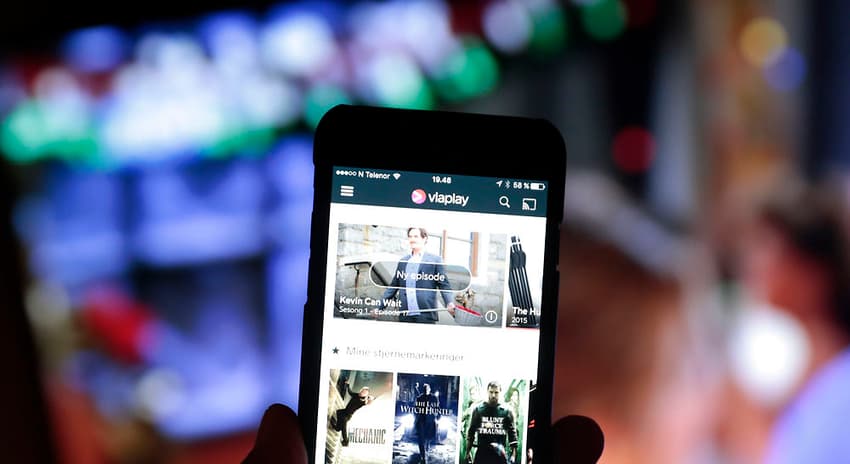Danes spend almost one third of the day consuming media: report

The average amount of time spent consuming media including television, radio, streaming and social media in Denmark is 7 hours and 16 minutes, an analysis has found.
Although the total sounds just as likely to be the amount of sleep needed by the average person, it does in fact correspond to daily media consumption in Denmark, according to a report by national broadcaster DR’s media research department.
The broadcaster issues a report annually on media habits amongst consumers in Denmark.
Although the last year has not seen a significant change in the types of media people in Denmark tend to spend their time on, a number of interesting trends can be seen in the new report, according to Dennis Christensen, who heads the DR Medieforskning research unit.
“One of the largest trends we are seeing is that Facebook is going through a decline in usage, particularly amongst young Danes,” Christensen said.
“That is the first time ever that we’ve seen a decrease in the use of Facebook,” he added.
Although most people in the country still have a profile on the social media site – which has seen several controversies of misuse of data within the last year, including in Denmark – daily usage has dropped significantly during the last year.
In 2017, 81 percent of 12-24-year-olds logged on to Facebook daily. That figure decreased to 73 percent last year.
Meanwhile, the study also found that digital media are becoming an increasingly large part of everyday life.
“What we can see is that Danes are becoming more digital. That means they are spending more and more time on streaming services like Netflix and Spotify, and less on conventional television,” Christensen said.
“But it is very clear that most Danes spend time on both types of media,” he added.
Streaming of television series and films saw a slight increase in 2018, with 48 percent using such services at least once a week compared to 46 percent in 2017.
An average of 142 minutes daily is spent watching television, a drop of 8 minutes against the previous year.
“The trend we have seen for the last few years will continue.
“What will be interesting will be to see whether the pace of change will continue as it has in the last couple of years. Or whether 2019 will be the year in which change will really begin to gain pace,” Christensen said.
READ ALSO: For internationals, 'reliance on social media is sometimes greater because we are more disconnected'
Comments
See Also
Although the total sounds just as likely to be the amount of sleep needed by the average person, it does in fact correspond to daily media consumption in Denmark, according to a report by national broadcaster DR’s media research department.
The broadcaster issues a report annually on media habits amongst consumers in Denmark.
Although the last year has not seen a significant change in the types of media people in Denmark tend to spend their time on, a number of interesting trends can be seen in the new report, according to Dennis Christensen, who heads the DR Medieforskning research unit.
“One of the largest trends we are seeing is that Facebook is going through a decline in usage, particularly amongst young Danes,” Christensen said.
“That is the first time ever that we’ve seen a decrease in the use of Facebook,” he added.
Although most people in the country still have a profile on the social media site – which has seen several controversies of misuse of data within the last year, including in Denmark – daily usage has dropped significantly during the last year.
In 2017, 81 percent of 12-24-year-olds logged on to Facebook daily. That figure decreased to 73 percent last year.
Meanwhile, the study also found that digital media are becoming an increasingly large part of everyday life.
“What we can see is that Danes are becoming more digital. That means they are spending more and more time on streaming services like Netflix and Spotify, and less on conventional television,” Christensen said.
“But it is very clear that most Danes spend time on both types of media,” he added.
Streaming of television series and films saw a slight increase in 2018, with 48 percent using such services at least once a week compared to 46 percent in 2017.
An average of 142 minutes daily is spent watching television, a drop of 8 minutes against the previous year.
“The trend we have seen for the last few years will continue.
“What will be interesting will be to see whether the pace of change will continue as it has in the last couple of years. Or whether 2019 will be the year in which change will really begin to gain pace,” Christensen said.
READ ALSO: For internationals, 'reliance on social media is sometimes greater because we are more disconnected'
Join the conversation in our comments section below. Share your own views and experience and if you have a question or suggestion for our journalists then email us at [email protected].
Please keep comments civil, constructive and on topic – and make sure to read our terms of use before getting involved.
Please log in here to leave a comment.